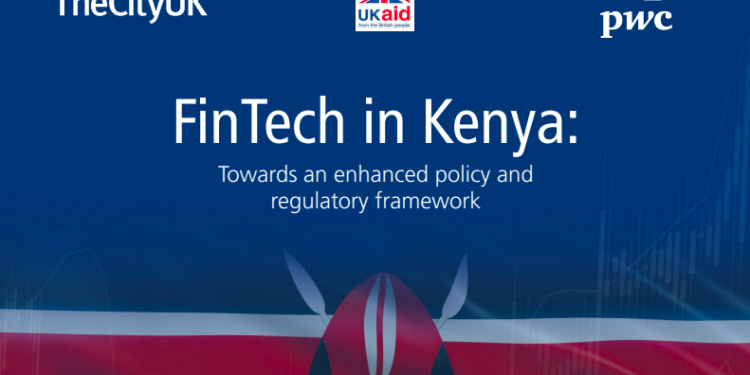Kenya has the opportunity to become a continental leader in FinTech and dramatically boost financial inclusion by enhancing the existing ecosystem, according to a new research from TheCityUK and the Nairobi International Financial Centre (NIFC) developed by PwC. Doing so will take a renewed focus by the public and private sector to addressing barriers to entry and growth for start-ups, helping start-ups to access more capital and achieve scale, and adopting a cross-sector approach to FinTech regulation.
The research, set out in a report ‘FinTech in Kenya: Toward an enhanced policy and regulatory framework’, found that Kenya is already well-established as a leading source of FinTech innovation, developing solutions which are leapfrogging existing infrastructure and driving financial inclusion and the economic empowerment of its citizens. Formal financial inclusion in services and products in Kenya has grown significantly from 26.7% in 2006 to 83.7% in 2021 [2] – growth largely driven by new financial technology and innovations, especially in mobile money and mobile banking.
Digital financial products have played a significant role in catalysing financial development and inclusion across the country, especially because of the affordable and accessible services that have subsequently been layered onto the mobile and digital platforms infrastructure. Kenya’s efforts in the growth of FinTech can be seen through its forward-thinking financial inclusion strategies and incentivising schemes such as the phased enactment of a dedicated payments and digital lending regulatory framework and the adoption of regulatory sandboxes.
However, gaps and the challenges still exist that impact the evaluation, approval and regulation of new and complex FinTech products and innovations. In the report, TheCityUK and PwC make the case for a series of policy and regulatory enhancements which, if taken forward, could spur greater innovation, unlock capital and investment, and further accelerate financial inclusion.
According to PwC Kenya Associate Director Joseph Githaiga, FinTech has made itself a key driver of economic development by speeding up financial inclusion and introducing innovative financial products at a rapid rate.
“While Kenya is a leader in the FinTech world, increased impact can be achieved by allowing greater innovation and attracting more investment into Fintech. A supportive regulatory framework is key in attracting more players into the market, setting the stage for increased innovation in the sector.” says Githaiga.

The acting CEO of Nairobi International Financial Centre (NIFC) Oscar Njuguna argues that Nairobi has potential to be a leading financial services centre in Africa, and to realise this vision, the country must strive to be at the forefront of future-focused growth areas like FinTech.
The report recommends policymakers to consider developing a national FinTech policy framework that supports FinTech transformation and innovation, promotes industry growth and removes duplicative regulations in financial services to create certainty in FinTech services and products. The main objective of this policy should be financial inclusion and to establish incentives for FinTech entities by improving their ease of doing business.
READ; CMA Regulatory Sandbox is now accepting applications. Here’s why it is a big deal




